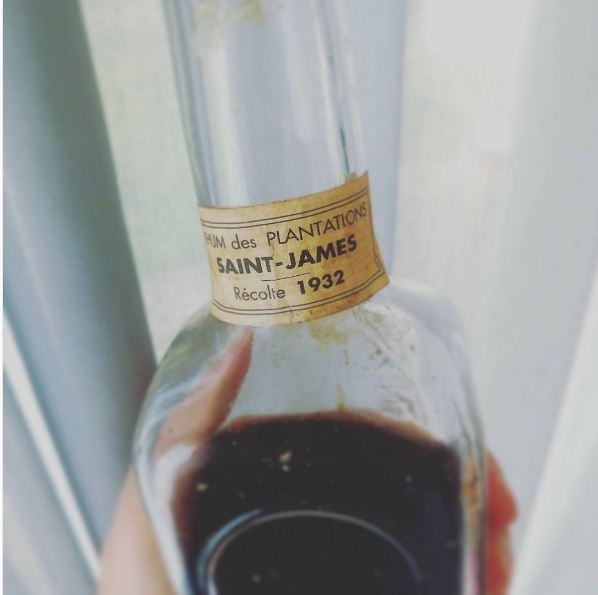Rumaniacs Review #050 | 0450
St. James has taken its place as the source of the most ancient rhum I’ve tried in my life (the 1885), and to this day they continue to make some very good agricoles. But you’ll forgive me for yearning for their old, out-of-production rhums, made in times that predate my own grandfather; and I like trying them not just because they’re so old and so appeal to the collector in me, but because I find it fascinating how different they are to what’s made nowadays with the appurtenances of modern technology and skill. Such dinosaurs don’t always appeal to the modern palate, true, yet they remain intriguing and beguiling signposts on the road that describes how we got to be where we are now.
Colour – Red-amber
Strength – 47%
Nose – Wow – talk about a rum going off at right angles to expectations. Starts off with old, damp, musty cellars and rotting newspapers paper granny stored there with her preserves; bananas and light oranges, plus the vegetal saltiness of a bouillon into which she dumped one too many maggi cubes. Also pickled gherkins in vinegar, molasses and peaches in syrup straight from the can.
Palate – Smooth and easy, quite warm. Opens with a vein of thin honey, to which additional flavours of caramel and bonbons are added; leaving it to open up then provides anise, prunes, more molasses and peachess (less syrup this time), and burnt sugar.
Finish – Short and warm, very pleasant, mostly cocoa, raisins, nuts and again that thin vein of honey.
Thoughts – Well, this is quite some rhum. Though I like it, I’m also not too sure what to make of it – surely this is not a contemporary agricole, let alone a standard, present-day St. James. Lekker, one might say…yet much of what conforms to modern sensibilities and ideas of what an agricole is (the grassy, clean profile) is missing. It’s also rather thick – fortunately without being cloying – and that makes one wonder whether it was doctored, messed with or dosed (it’s likely because they boiled the cane juice in the old way as a sort of quasi-pasteurization process). In any event, when anyone tries a rum made this long ago, it’s a window into a different time and a different rum-making mentality. It might be worth sampling for that reason alone.
(84/100)
